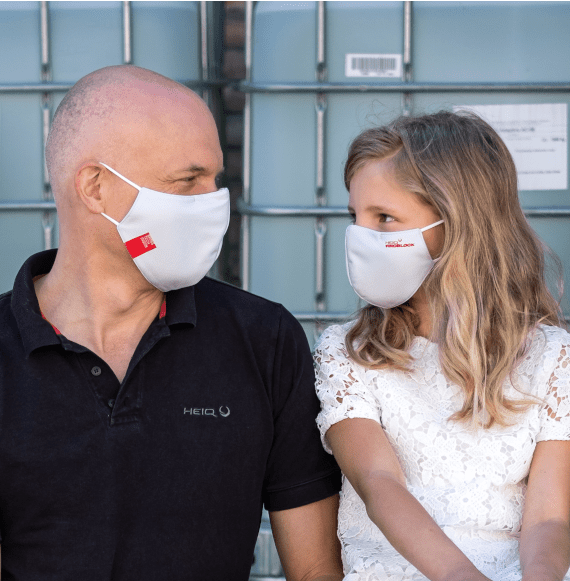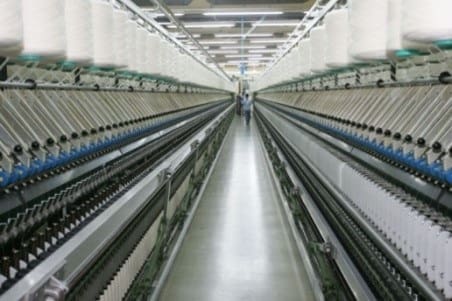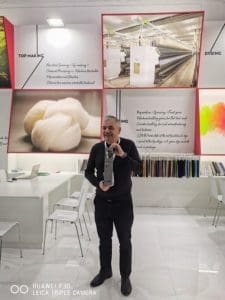
HeiQ Viroblock masks – will they come in wool next?
THE COVID-19 pandemic is inspiring some companies to add new protective qualities to wool and other textile fabrics to protect against the bugs that plague us.
Although there have been some hiccups — with one Australian company recently fined for claiming its activewear was effective against coronavirus – the race to produce protective finishes for apparel products is well underway.
Brisbane-based company Lorna Jane was fined $40,000 by the Therapeutic Goods Administration over claims its activewear is effective against coronavirus, but a Swiss textile innovator HeiQ has worked with Australia’s Doherty Institute, the University of Melbourne and The Royal Melbourne Hospital to develop silver antimicrobial and vesicle Viroblock technology that rapidly destroy enveloped viruses, including coronaviruses, on fabric in laboratory tests.
HeiQ partner UAE company ViroMasks has used the anti-microbial Viroblock technology to develop a reusable anti-viral mask that offers 99.99pc protection to the wearer and the general public.
International textile consultant Jimmy Jackson said because of the COVID-19 pandemic there had been growing interest in the area, although he was not aware of any company which has applied a proven COVID-protective treatment to wool.
“Nearly every day I read about companies who have put these finishes on other fibres,” he said.
“A lot of them are claiming action against bacteria.”
A Chinese client of Mr Jackson’s was looking at applying the HeiQ technology to woollen fabric.
“We have been doing trials on that.”
Xinao develops wool yarns with anti-bacterial finishes

Spinning wool yarn at Xinao
One of his clients, Chinese wool processing giant the Zhejiang Xinao textile group, has launched a wool and wool-blend yarn with an anti-bacterial finish containing zinc.
“Zinc and silver have been known to have anti-bacterial properties since the Roman times.
“What we’ve done is develop a way where we can apply it to wool and more importantly, we can make it permanent for machine washing,” he said.
“We’ve had it tested by independent labs and basically it’s 99 percent effective against the two most common types of bacteria found on human skin.”
The Merino wool and Merino wool blend worsted machine knitting yarns with anti-bacterial properties were launched as part of Xinao’s new WOOL protect program. Independent tests found the newly developed yarns had enhanced protection against the two most common types of bacteria (Staphylococcus Aureus and Klebsiella Pneumonia), showed a 99pc reduction in the growth of these bacteria’s and that was effective after 30 domestic machine washes. Mr Jackson said Xinao was not claiming anything against COVID-19.
Mr Jackson said during the COVID-19 pandemic, the companies he works for have been focussing on innovation while global sales are slow.
He said another company Diyang Merino, is already busy manufacturing reusable masks (Non-medical grade) for a number of customers made from 100pc machine-washable Australian extra fine Merino Wool.
“Nobody knows much about COVID yet, but there is a big interest in sanitisation all-round on everyday clothing.
“That’s going to stay with us; if COVID disappears we will carry on with more social distancing and washing our hands,” he said.
Innovate during the downturns

Jimmy Jackson when his client Xinao won the gold award for the most innovative new yarn at the world’s largest sports outdoor fair ISPO Munich.
Mr Jackson said the interest in the anti-bacterial finishes on yarn and fabric was inspired by the COVID-19 pandemic and the resultant downturn in global consumer trade.
“Whenever there is a downturn in business — and this is from my 50 years of experience – you were always taught to use these opportunities to innovate.”
“Some of the most successful countries in the world, like Microsoft and Apple, actually started their businesses during a recession,” he said.
“When everything is going good, you only think about sales and profit –
Mr Jackson has just clocked up 50 year wool industry and said he wanted to retire last year, but was so busy, he couldn’t.
“I bought myself a new Jaguar as my bonus.
“Last year I couldn’t sell any more yarns or fabric because I didn’t have enough wool.”
He believes ‘when the going gets tough, the tough should innovate’ and it is a worthy maxim for the Australian wool industry.
“I’ve worked with some great business people in the past and they said ‘use this time for innovation’.
“You start thinking outside the box when you’ve got more time.”
Mr Jackson said the wool industry had to continue to create innovative products and to market them, similar to what the car industry has done with electric cars or what soft drink manufacturers do with a new flavour of a an established brand.
“Otherwise it is just generic marketing, tell people that wool comes from sheep.”

Aussie wool producers have some current challenges; however, the closing comment from Mr Jackson in this article sums it all up…’when the going gets tough, the tough should innovate’. There are several innovative blockchain enabled agtech solutions available to the wool supply chain and able to trace from sheep genetics to end-consumer fashion label. If industry can take steps to adopt these commercially-proven technologies as a ‘world first,’ then the possibility of premium prices arising from underpinning consumer trust in the ‘clean green‘ Aussie product will be there.